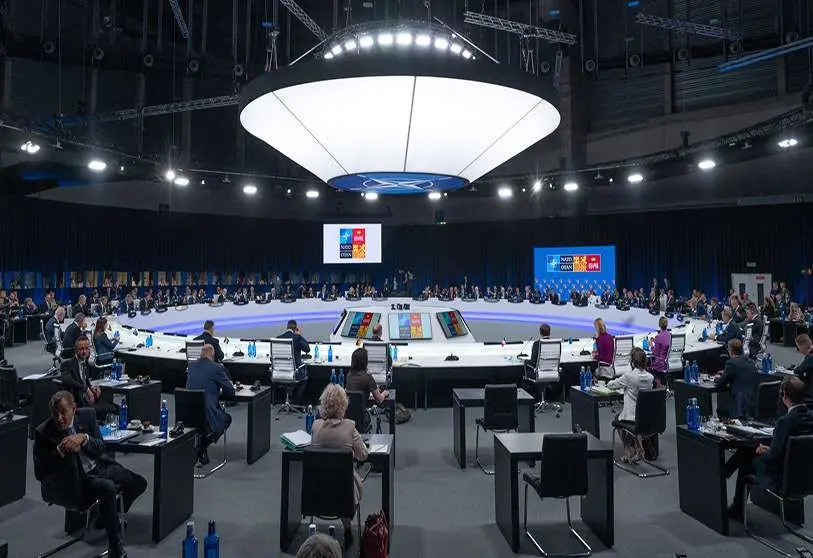The Allies don't want another Hitler

It took Hitler two weeks to occupy Austria, Czechoslovakia and Poland. When his troops reached Poland, then Britain and France declared war. If there is one thing Europe knows about, it is wars.
One could compile a compendium of wars on the Old Continent, people have killed each other for practically everything: for any pretext throughout the history of this complicated continent. Perhaps the fierceness of self-destruction is in its DNA.
The last two great world wars have been devastating. In the First World War, the trigger was the assassination of Archduke Franz Ferdinand, heir to the Austro-Hungarian Empire; in the Second World War, Hitler's ambition to restore Germany's greatness, which for him had been humiliated by the Treaty of Versailles after losing the First World War.
He was so obsessed with the subject that the surrender of France achieved by German troops was signed on 22 June 1940 and took place in the same train carriage in the forest of Compiègne in which the Treaty of Versailles was signed on 11 November 1918. Hitler lived in his imagination with revenge and German supremacism.
This coming 14 August will mark 77 years since the end of the Second World War, which not only left millions of dead, pain and devastation, but also brought about a new world order.
Russia's invasion of Ukraine on 14 February has forced the 30 allied countries that make up the North Atlantic Treaty Organisation (NATO) to unite through a consensus that morally condemns the military occupation of a country under siege, destruction and the death of civilians just because in the imagination of the Russian dictator, Vladimir Putin, the idea that Russia must regain the greatness - or position - it had under the USSR orbits the imagination of the Russian dictator, Vladimir Putin.
The present risks becoming too much like the past. For example, there is the precedent of Hitler and what he did by taking over the Sudetenland (October 1938), which belonged to Czechoslovakia with the approval of the UK and French governments; Hitler's pretensions did not stop then.
The allies cannot take the same risk with Putin because after Ukraine, they could follow the Baltic states or Poland and expand with the intention of reinstating Russian power in Eastern European countries that were once part of their Soviet orbit of influence.
This may be just speculation. It could be a reality if it has been in Putin's mind for a long time, perhaps as long as Hitler has had the grievance of the Treaty of Versailles.
In the days that I covered the NATO Summit in Madrid, chosen to participate along with 1,199 other journalists from all over the world, I have seen how the fear of Putin has united more than ever before the leaders of some thirty countries who know well that in the face of a powerful and threatening enemy like Putin, unity is an umbrella of protection and strength.
The smaller Eastern European countries that were once part of the USSR and then gained independence in 1991 are the most fearful that if Ukraine falls into the hands of the Russian dictator, they will indeed be next in line.
NATO accuses Putin of becoming unpredictable and that only a Russia that pulls its troops out of Ukraine and returns to respect for sovereignty and predictability could bring the situation back on track. For the time being, the announcement from the NATO Summit is more military spending, more weapons, more troops, especially to reinforce the weakest flanks to the East and South.
Ukraine emerges from this Summit as the last frontier, the last watchtower between democracy and tyranny, and it must not fall for anything in the world; this is the feeling of Alliance leaders who are willing to continue giving more money and more weapons to Zelenski to weaken the invader despite all the collateral damage to ordinary citizens' pockets from sanctions and the impact on trade in raw materials.
Zelenski, who has already taken the measure of the rest of the European countries, is asking for 5 billion dollars a month to support the siege, as he expressed it via streaming, during the NATO Summit. For the time being, Biden will send 800 million dollars.
From this meeting I am left with the feeling that the war being waged in Ukraine will be long and costly; very costly for everyone because NATO members are willing to pay for the economic blow with all the consequent social havoc so as not to make the historical mistakes: Hitler saw in Europe's weakness an enormous opportunity for his expansionist appetites and domination. The allies want to exhaust Putin by using Ukraine as a shield.


